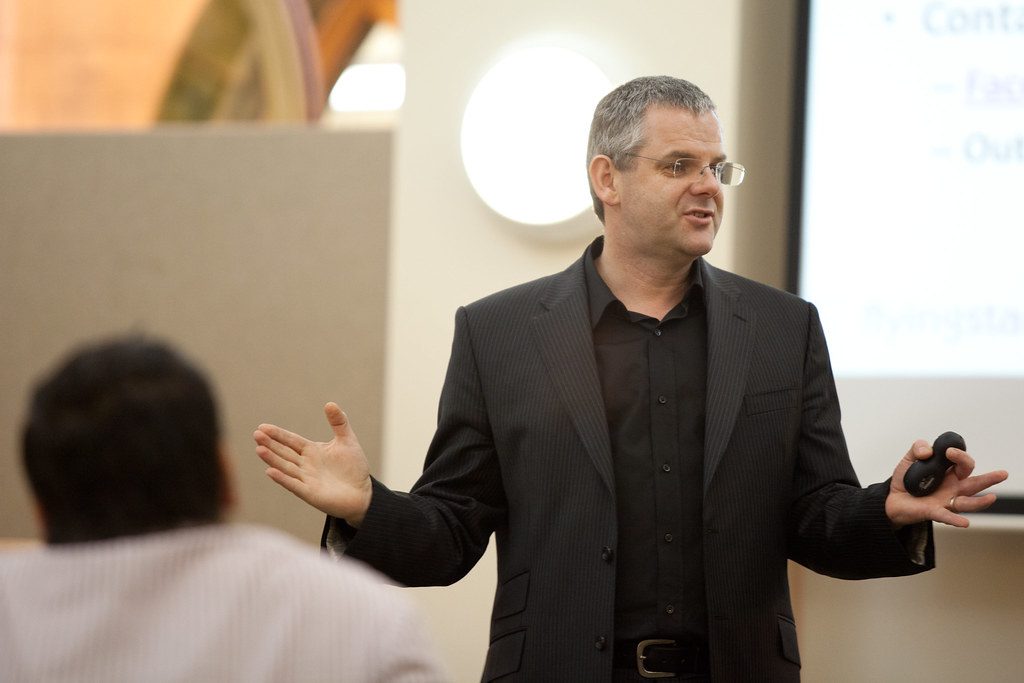Welcome to our Meet the Judge interview series, where we speak with the 2023 edition of the Super Connect for Good Competition’s most experienced, influential and passionate judges.
In this interview, we’ll be talking to David Bozward, a serial technology entrepreneur, educator, researcher and authority on international youth entrepreneurship and education with over 20 years of entrepreneurial business experience.
Please introduce yourself, your organisation and your role
David is an accomplished technology entrepreneur, esteemed educator, seasoned researcher, and renowned authority in international youth entrepreneurship and education. With a remarkable track record spanning over 20 years in entrepreneurial business, David has been instrumental in creating and delivering enterprise and entrepreneurship education across various government and university organisations for the past decade. His expertise encompasses designing and implementing diverse extra-curricular entrepreneurship interventions, university elective modules, and a cutting-edge venture creation degree program. David’s current role is supporting students from diverse backgrounds to gain graduate roles and/or start and grow their businesses.
What are some of the most pressing social issues that your company is working to address through its technology?
GBS is focused on widening participation in University education, which is important for several reasons. First, it ensures equal opportunity by providing access to higher education for individuals from all backgrounds, reducing inequalities and promoting social justice. Second, it enables economic and social mobility, as higher education equips students with the knowledge and skills for better job prospects and higher earning potential. Third, it fosters diversity and inclusion by bringing together students from different socio-economic backgrounds and cultures, enhancing the educational environment and preparing students for a globalised world.
Fourth, it helps address skills gaps in the workforce by attracting and supporting a more diverse range of students, contributing to a more adaptable and robust workforce. Finally, it promotes social cohesion and tolerance by encouraging interactions between individuals from diverse backgrounds, challenging stereotypes, and fostering understanding. In summary, widening participation in universities promotes equality, social mobility, diversity, and inclusion, creating a more inclusive and prosperous society.
How does your organisation support or work with startups and scaleups at present?
We offer students a wide-ranging set of support which starts with ideation, idea validation and inspirational talks, before moving forward to test ideas through minimal viable products and then onto launching, growing and finally scaling their business. This is supported by funding, space, networking and expert advice.
Why did you choose to support the Super Connect for Good 2023 Competition as a judge?
GBS wants to be part of this competition as EdTech holds tremendous potential to revolutionise education in developing countries, addressing challenges of access, quality, and relevance. By leveraging technology, universities can expand access to education, enhance its quality, and empower individuals for lifelong learning. EdTech also strengthens research capabilities, driving innovation and contributing to societal development.
What are you looking for from the applicants and what tips would you give them?
When participating in a pitching competition, consider the following tips to deliver a compelling pitch:
- Define your idea concisely, highlighting its purpose and unique selling points.
- Understand your audience and tailor your pitch to ensure we understand the good you do in the world.
- Create a captivating narrative that engages the judges and showcases the problem your idea solves.
- Focus on the problem-solution fit, demonstrating feasibility, scalability, and market demand.
- Emphasise your competitive advantage, showcasing what sets your idea apart from others.
- Practice your pitch thoroughly, seeking feedback and refining it for a smooth delivery as it’s a very short pitch.
- Use visuals effectively, such as slides or demos, to enhance your message.
- Be passionate and confident, displaying enthusiasm for your idea and inspiring confidence in the judges.
- Prepare for potential questions and objections, providing well-thought-out responses.
- Stay composed and adaptable, maintaining professionalism and adjusting as needed.
Remember, a successful pitch combines a clear and compelling message with confident delivery. By following these tips, you increase your chances of making a strong impression and succeeding in the competition.
In your opinion, what impact will technology have in creating a better future?
In today’s rapidly evolving world, technology is revolutionising the education landscape and playing a pivotal role in shaping a better future. From enhancing learning experiences to increasing access to quality education, technology holds tremendous potential in addressing the challenges faced by education systems globally. Within this context, tech startups and scaleups are making significant contributions to society’s greatest educational challenges and this competition is pivotal to ensure this continues.
First and foremost, technology has the power to enhance and transform the learning experience. Through innovative educational software, digital learning platforms, and interactive content, students can engage in personalised and immersive learning experiences. Adaptive learning technologies analyse individual strengths and weaknesses, allowing students to learn at their own pace and receive tailored support. Tech startups and scaleups are at the forefront of developing and implementing these technologies, driving advancements in educational methodologies and pedagogical practices.
Furthermore, technology is a catalyst for expanding access to quality education, particularly in underserved communities and developing countries. EdTech solutions offer scalable platforms that can be accessed remotely, breaking down geographical barriers and providing educational opportunities to those who might otherwise be left behind. Tech startups and scaleups are developing low-cost devices, mobile applications, and online platforms that bring educational resources directly to students in remote areas. By leveraging technology, these ventures contribute to bridging the educational divide and promoting inclusivity in education.
Moreover, tech startups and scaleups are pioneers in promoting digital literacy and 21st-century skills. They develop educational tools and programs that equip students with the digital competencies required in today’s workforce. These ventures often collaborate with educational institutions to provide teacher training and professional development, empowering educators to integrate technology effectively in their classrooms. By championing digital literacy, tech startups and scaleups contribute to preparing students for the demands of a digital society and a rapidly evolving job market.
In conclusion, technology, along with the efforts of tech startups and scaleups, has the potential to revolutionise education and create a better future. By enhancing learning experiences, expanding access to quality education, promoting digital literacy, and driving educational research and innovation, these ventures are addressing society’s greatest educational challenges. As technology continues to evolve, it is crucial to support and foster the growth of tech startups and scaleups to unlock their full potential in shaping the future of education.
Global Banking School is the EdTech co-partner of the Super Connect for Good Competition 2023 powered by Empact Ventures and Hays supported by Global Good. The global Tech for Good initiative is now open for applications here to tech startups and scaleups in the UK, Ireland, Europe, Asia, Australia and New Zealand










